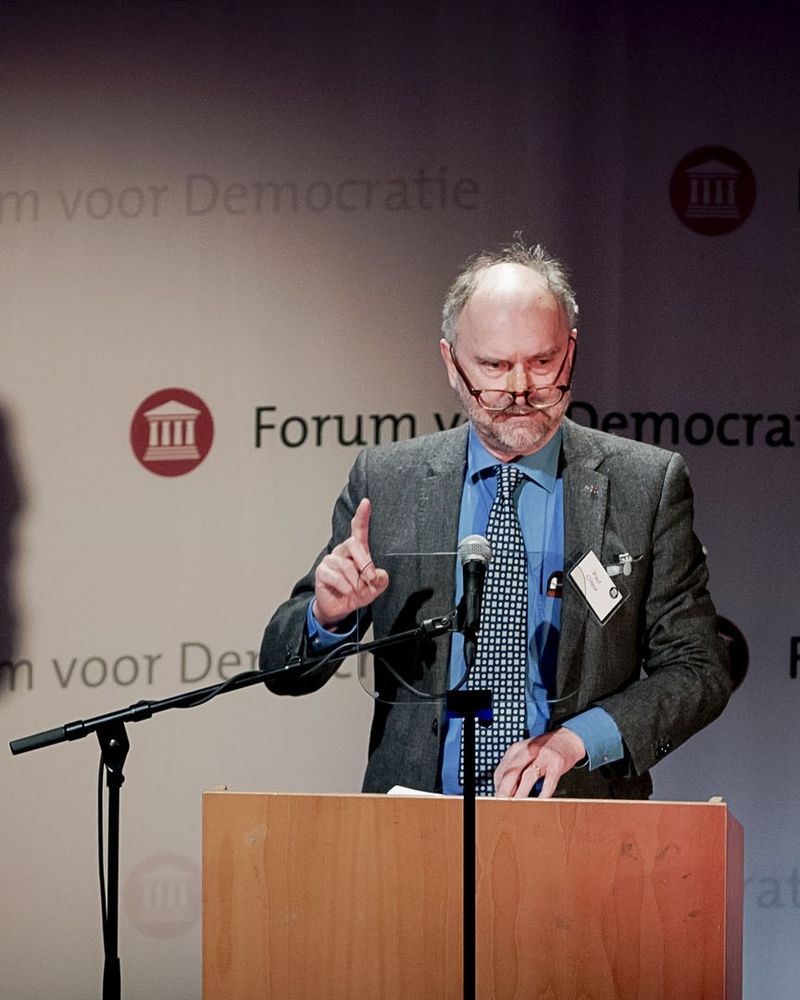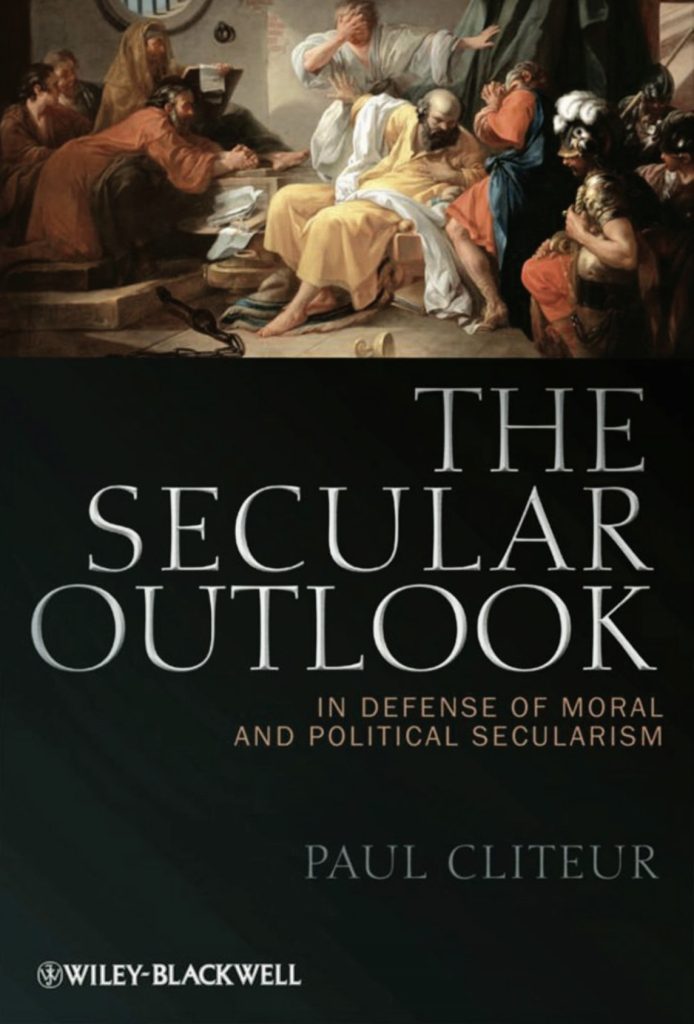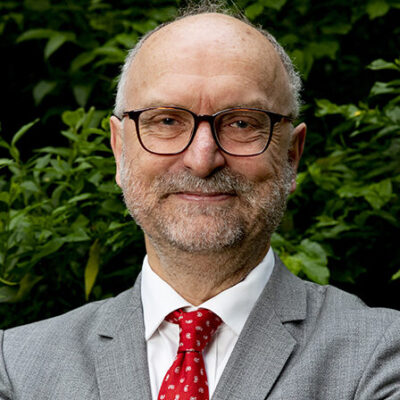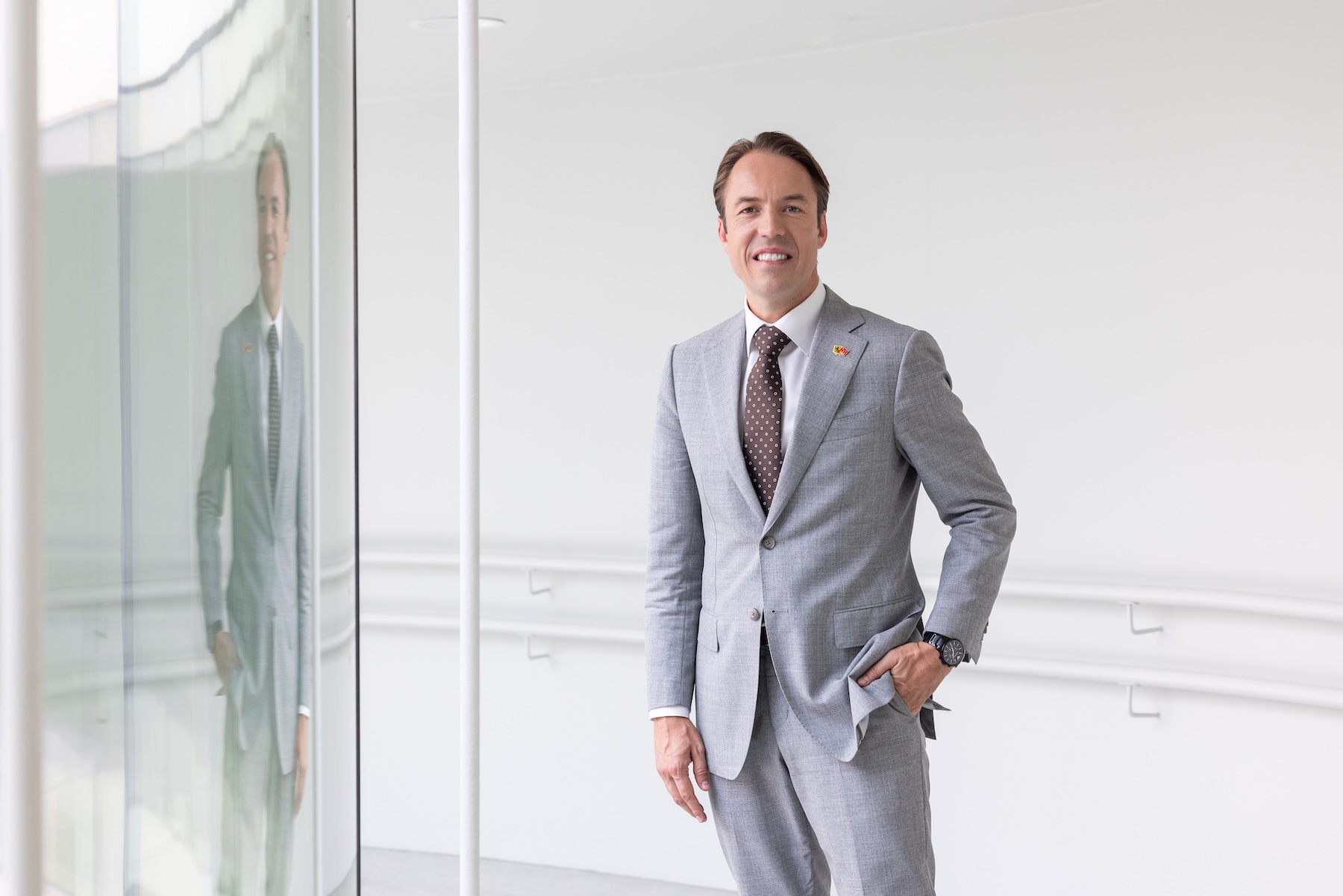
When Paul Cliteur began lecturing at Leiden University in the Netherlands (1984), he was strongly influenced by Arthur Schopenhauer (1788-1860). The philosopher born in Gdańsk (then part of the Polish Lithuanian Commonwealth, later part of the Kingdom of Prussia) profoundly shaped his views on life. His work taught him the importance of critical and independent thinking - something that, under the influence of ideological uniformity (“woke”), seems rare at universities nowadays, he argues.
Schopenhauer was not an academic philosopher, but an outsider. His Die Welt als Wille und Vorstellung (1818), (“The world as Will and Representation”) is his most significant philosophical work. Still, for those who want to get acquainted with his thinking, I recommend the Parerga und Paralipomena, especially the essay “Über die Universitätsphilosophie” (“On Philosophy at the Universities”). In the latter book, he turns against academic conformism and glorifies independent thinking, a theme I focus on in this contribution.
Independent thinking: Descartes and Galileo
Schopenhauer praises René Descartes (1596-1650) for teaching people to think independently, with their “own head”. Until then, the Bible, along with Aristotle, had been regarded as the highest authority in intellectual circles.
This led Schopenhauer to realise that philosophy is not a repetition of authorities, but the taking of one’s position, even against the great thinkers. Descartes led the way in this. This is another reason why Descartes is the father of modern thought. Schopenhauer writes:
“Descartes is rightly considered the father of modern philosophy, because he taught reason to stand on its own two feet (...), for which until then the Bible and Aristotle had functioned.”
Descartes’ famous “Cogito ergo sum” (“I think, therefore I exist”) marks the beginning of modern philosophy. He began by questioning everything all over again. Yet Descartes was also cautious: after Galileo’s condemnation by the Catholic Church for his defence of heliocentrism (the sun is central in the universe, not the Earth) in 1633, he decided not to publish his heliocentric work, Le Monde. It was published only after his death ( † 1650), in 1664.
Galileo, with his conflict with the Church, actually put “self-thinking” (Schopenhauer) into practice. His defence of heliocentrism - that the Earth revolves around the Sun - made him a martyr for free thought. However, despite scientific evidence, he was forced to renounce his beliefs in 1633.
In front of the Inquisition and other Church dignitaries, the 70-year-old Galileo was forced to pronounce that he rejected his heliocentric views and promise that he would always listen to the Church. In 1600, 33 years earlier than that, Giordano Bruno suffered an even crueller fate: he was burned at the stake for similar ideas on the Campo dei Fiori in Rome.
The battle between revelation and reason
How could this happen? In Galilei’s time, it was still common to use biblical texts as scientific arguments. The biblical books of Psalms, Ecclesiastes, and Joshua were deployed against the Copernican or heliocentric worldview. Galileo’s empirical observations did not count because Scripture could not fail. If the Bible says “the earth stands firm, it does not falter,” would Galileo know better?
Against this was an emerging rationalism, in which perception and reason were given primacy. This is the core of modernism.

This modernism began with Galileo and, albeit not quite consistently implemented, with Descartes. Modernism puts reason and perception above scriptural writing. Fundamentalism, on the other hand, puts scripture above reason. Schopenhauer and Descartes belong to the modernist tradition, which prioritises reason over revelation.
In the 20th century, modernism received legal protection. The Universal Declaration of Human Rights (1948) and the European Convention on Human Rights (1950) guarantee freedom of thought, conscience, and religion. In 1993, the European Court stated in Kokkinakis v. Greece that this freedom extends to atheists, agnostics, and sceptics—a recognition of secular self-thinking and modernism.
New threats: Islamism and cultural Marxism
Yet this freedom is not guaranteed. First, the religious threat now comes not from Christianity but from Islamism. Mass migration from pre-modern cultures is increasing the proportion of fundamentalist views in Europe. The Bible may have lost its power in scientific discussions, but the Koran is taking over that role in some circles.
Second, there is a secular threat: cultural Marxism. Since the 1960s, Western culture has been heavily influenced by Marxist ideas. What started with student protests led to an ideological orthodoxy stigmatising dissent. At the time of Galileo, the threats to free thought were the Bible and Aristotle. In our time, that threat comes from Marx, from the Left.
Professor Wouter Buikhuisen
A poignant example is the case of Wouter Buikhuisen (1933-2025), a Leiden criminologist who wanted to research biological factors in criminal behaviour. Such a thing is not allowed by Marxism, because environmental factors, not biology, determine everything. Buikhuisen’s work was reviled as “fascist”. His Leiden oration in 1978 was disrupted (intruders threw a smoke bomb into the hall and intimidated visitors), and his academic career was effectively ended in 1988.
Buikhuisen is something of a contemporary Galileo. He established himself as an antiques dealer in Spain. This affair shows that even secular dogmas of the Left can suppress freedom of thought, just as the Catholic Inquisition did in 1633.
Buikhuisen received no formal honours. He was not awarded an honorary doctorate, for example. Today, his work is regarded as a significant contribution to the integration of biological and social factors in the field of criminology. But this is despite university opposition, not because of it. His experiences illustrate the tensions that can arise when scientific research touches social taboos.
In this case, the Marxist taboo. Due to the fanatical religious zeal of the Left Church, led by the Chief Inquisitor Piet Grijs (Hugo Brandt Corstius, 1935-2014, an extreme leftwing commentator with much adherence in his time), Buikhuisen’s career was broken, just as the Church in 1633 frustrated the spread of the Copernican worldview for hundreds of years.
Aristotle as a model for dogmatics
Back to Galileo. Like the Bible, Aristotle also acquired a status that was untouchable within Christianity. His ideas were integrated into the teachings of Thomas Aquinas and long considered accurate. Bertrand Russell argued that almost every intellectual advance since the 17th century began with an attack on Aristotle.
Where does it go wrong now? I would say: absolutising a thinker - be it Aristotle, Marx, or Mohammed - is a threat to free thought. Schopenhauer opposed such “authority thinking”. Philosophy and science should always maintain the space to criticise, even their most prominent figures. Even Aristotle. And also “sacred texts,” of course. But also Marx. The whole idea that “sacred texts” exist (be it the Bible, the Koran, or a text by Karl Marx) is at odds with free thinking.
Back to religion?
Some argue that, in defence of Western values, we need a reevaluation of Christianity. This “cultural Christianity” would counterbalance Islamism. But that strikes me as the wrong course. Why fall back on a clean-washed religion when we can also directly embrace Enlightenment thinking? (I refer here to the Dutch politician Pim Fortuyn, who said that Judaism and Christianity had been “washed clean” by the wash of humanism and enlightenment thinking, a wash that Islam is yet to receive.)
Schopenhauer, as well as Bertrand Russell, offers an alternative, not in the form of theism, but in the form of philosophical reflection, of independent thought. Life may be puzzling, but adopting one dogmatic system offers no redemption for it.
Schopenhauer’s lesson is the lesson of self-thinking. He pointed to Descartes as the founder of modern thought, but also pointed out that even Descartes lacked the courage to publish his ideas freely. Galileo showed that courage, even though he was punished for it.
History teaches us that freedom of thought is fragile. Threatened in the past by religious fundamentalism. Today, by both Islamism and secular dogmatism. That is why the struggle for free science, free speech, and independent universities remains a pressing issue.
Let the university remain a place where the spirit of Schopenhauer - and thus free thought - is central.






Not since my university studies have I read opinions on the topics discussed herein.